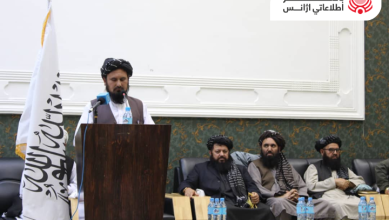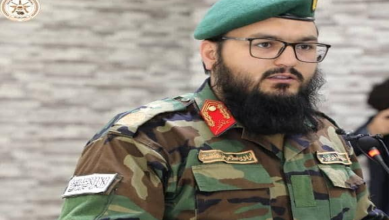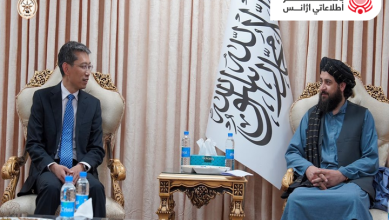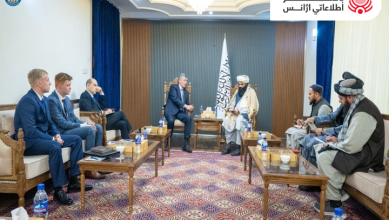
Saturday March 1, 2014
Kabul (BNA) National Geographic By Saleem Ali February 21, 2014 Guest article by Ian Lynch. How to assess the actions of government armed oppositions, particularly the Taliban who are now proved not to pay regard to the human life and rights during what they are reasoning that they do what is under the Islamic teachings, while vice versa, all they are resort to what is harshly disproved and denounced by the holy religion. According to an article written by the National Geographic, parts of which chosen to be published in BNA, the media portrayal of Afghanistan hardly comes close to imparting a sense of what this country is like. Endless articles report on the most recent bomb blasts and threats to human rights improvements.
These articles are often accurate, but they never mention the good things happening every day. Such reporting is of course inherent in a war zone, but the image it paints is one of violence and despair. That is by no means the totality of Afghanistan today. Sure there are many challenges and credible threats to worry about, but most Afghans remain hopeful. In Kabul, there are people going about their everyday lives with hardly a thought of the Taliban or what the government is up to. They are enjoying the freedoms they now have and I wonder whether they would ever allow harsh conservatism return. There are simply too many children, boys and girls, going to school, too many people opening restaurants, too many people going to the moves, too many people playing volleyball and soccer in the park.
Many of my students can’t even remember the last days of the Taliban. The generation that is about to burst forth into adulthood is one raised on more education and freedoms. Once that happens there is no turning back. A few more years of the current security level should ensure their rise. Nevertheless, any optimism must contend with the terror on the ground. In a week in January, a restaurant full of both expats and Afghans was brutally assaulted, a police transport was blown to pieces, and a bus full of Afghans on their way to a wedding party were also bombed. The Taliban claimed these attacks to be retaliation for U.S. drone strikes in Parwan province that killed civilians. Their so called retribution though did not attack the U.S. military. The victims were mostly Afghan civilians and police officers, as well as expat civilians. These are not the actions of a liberating army poised to drive out the great and terrible foreign invaders.
These are the actions of radical ruffians who show no regard for human life of any sort. With their recent attacks killing Afghans of many walks of life, most of the population does not support their actions. Their control in the southern rural provinces is strong, but in the north they are a despised and disregarded entity. Nevertheless there is a broader concern that their ideology has stealthily crept into the fabric of Afghan society in pernicious ways. In past years, legislation such as the 2009 Law on the Elimination of Violence against Women (EVAW) and the 2010 Mineral Law provided some social and environmental considerations on their corresponding issues. The lack of response from foreign donors has emboldened the political faction and they have already stepped up their efforts even before the drawdown of foreign troops. It hardly matters how strong EVAW is if relatives cannot even be questioned by the Afghan police, the Afghan army or the attorney general’s office. If this happens on cases of violence against women will be processed. Many women in Afghanistan are still confined to the home and nearly all cases of violence against women are carried out by family members in the home. If relatives are not allowed to be questioned or provide testimony against perpetrators of this violence then these barbaric acts will essentially be given immunity from the justice system.
The President of the Islamic Republic of Afghanistan did send the draft legislation back to the Ministry of Justice for revision following a Cabinet meeting. Also in the fall, attempts were made to strengthen EVAW by a handful of MPs. This positive action was quickly stamped down by the majority. Through all of these threats to women’s rights, the women of Parliament have largely been silent. EVAW has allowed for an increase in both reporting and prosecution of instances of violence against women. The law criminalized 22 kinds of violence against women for the first time in Afghanistan. These criminalized acts include, child marriage, exchange marriage, rape and various forms of beating. High profile cases such as that of Sahar Gul have shown the law can be effective, even if the punishments for such crimes are still weak. The UNAMA report on the EVAW Law published in December 2013 notes that reporting of such events increased 28%, but indictments due to EVAW increased only 2%. Even the increase in reporting is not as positive as it appears. Of the incidents registered in 2013, 1,019 were registered by the Ministry of Women’s Affairs and only 650 were registered by the police and prosecutors combined. Women are clearly still hesitant to go to the police for protection under EVAW. Many more incidents likely still go unreported. If the law banning relatives’ testimony goes through, what fragile gains that have been made in EVAW’s implementation may be undercut.




